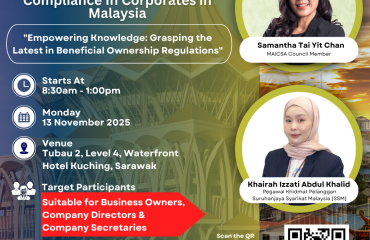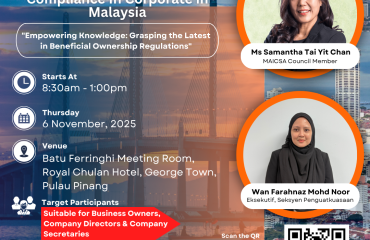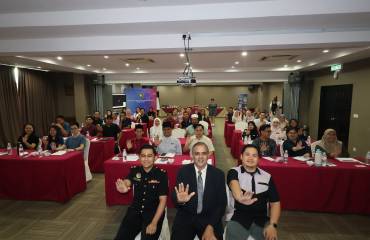PRESS STATEMENT, Wednesday 27 January 2016 Kuala Lumpur – Transparency International (TI) today released its Corruption Perceptions Index (CPI) 2015 results. “The 2015 Corruption Perceptions Index clearly shows that corruption remains a challenge around the world. But 2015 was also a year when people again took to the streets to protest against corruption. People across the globe sent a strong signal to those in power: it is time to tackle grand corruption,” said Chair of Transparency International.
Overall, two-thirds of the 168 countries on the 2015 CPI scored below 50, on a scale from 0 (perceived to be highly corrupt) to 100 (perceived to be very clean). This year 168 countries and territories are included in the CPI Survey. In 2014, there were 175 countries and territories. Bahamas, Barbados, Dominica, Puerto Rico, Saint Vincent & Grenadines, Samoa and Swaziland are not included in this 2015 CPI. Denmark comes out on top in 2015 CPI with a score of 91 while North Korea and Somalia again share last place, scoring just 8.
This year, Malaysia’s CPI score has declined from 52 to 50/100, and the country ranking has dropped significantly from 50th to 54th. Malaysia’s position would be even worse if those 7 missing countries were taken into account for 2015 CPI. Despite many steps have been implemented under the GTP/NKRA initiatives, the level of corruption experienced in Malaysia does not seem to be decreasing.
Has the country stalled its efforts to fight corruption? What can be done more to improve the country’s score?
Transparency International-Malaysia (TI-M) calls for the Malaysian Government to take the bull by horns and implement the following recommendations immediately in order to eliminate corruption completely:-
1) The government must provide the leadership and strong political will to drive the message of zero tolerance for graft. The general public are expecting high ethical standards of both conduct and accountability from executive, judiciary and legislative branches.
2) A practical formula or mechanism to regulate political financing.
3) Reforming the Malaysia Anti-corruption Commission (MACC) – more autonomy and independence from the executive in order for it to perform its job as a corruption combating agency more effectively and efficiently.
4) Malaysia to adopt UN Convention against Corruption (UNCAC) fully to be in compliance with the convention.
5) Malaysian Government to criminalize and enforce against passive foreign bribery.
6) Making governments more transparent by joining Open Government Partnership (OGP) membership
Reversing corruption is clearly not solely down to governments, but they’re the ones with the largest role and the power to create enabling environments for others. There’s anti-corruption legislation on the books everywhere – albeit patchy and imperfect – but a failure to implement and enforce is allowing the corrupt to operate with impunity. Governments must tackle political corruption and reform the financial sector, and this cannot happen until laws and regulations are put into action and civil society and the media are genuinely free.
END
Dato’ Akhbar Satar
President,
Transparency International Malaysia
Results release presentation:
CPI 2015
Transparency International-Malaysia is an independent, non-governmental and non-partisan organisation committed to the fight against corruption.







